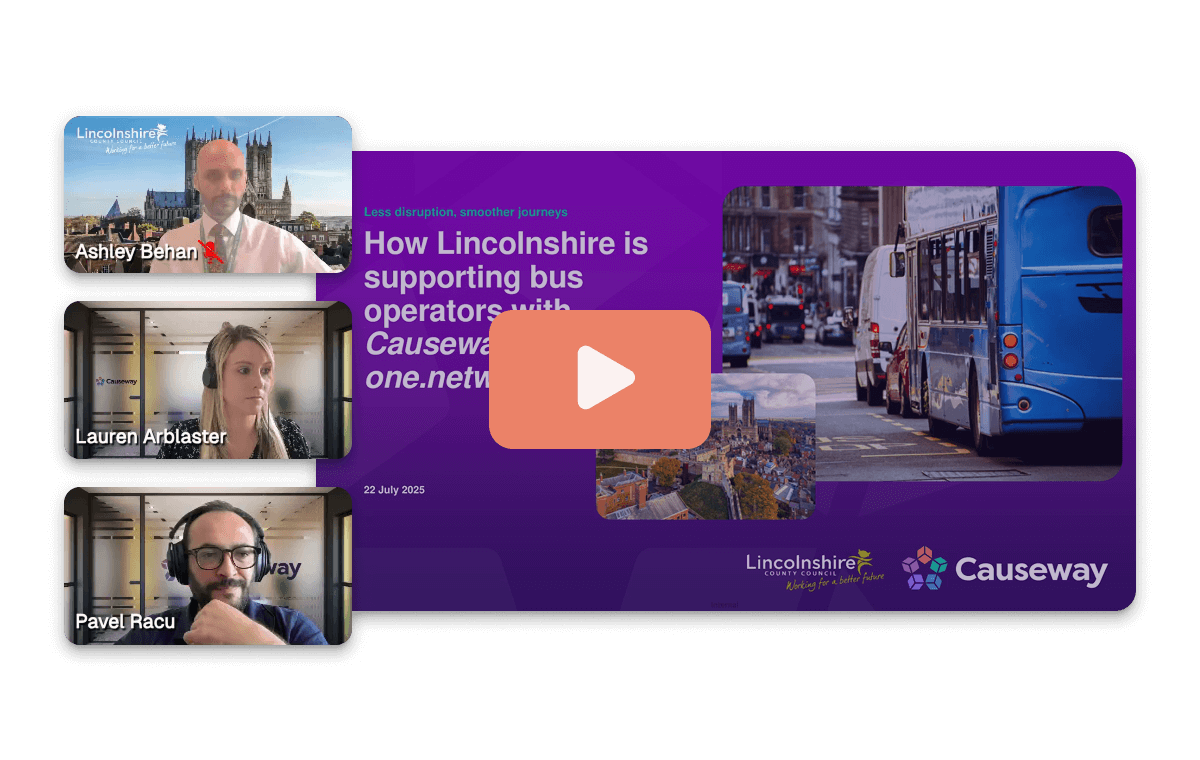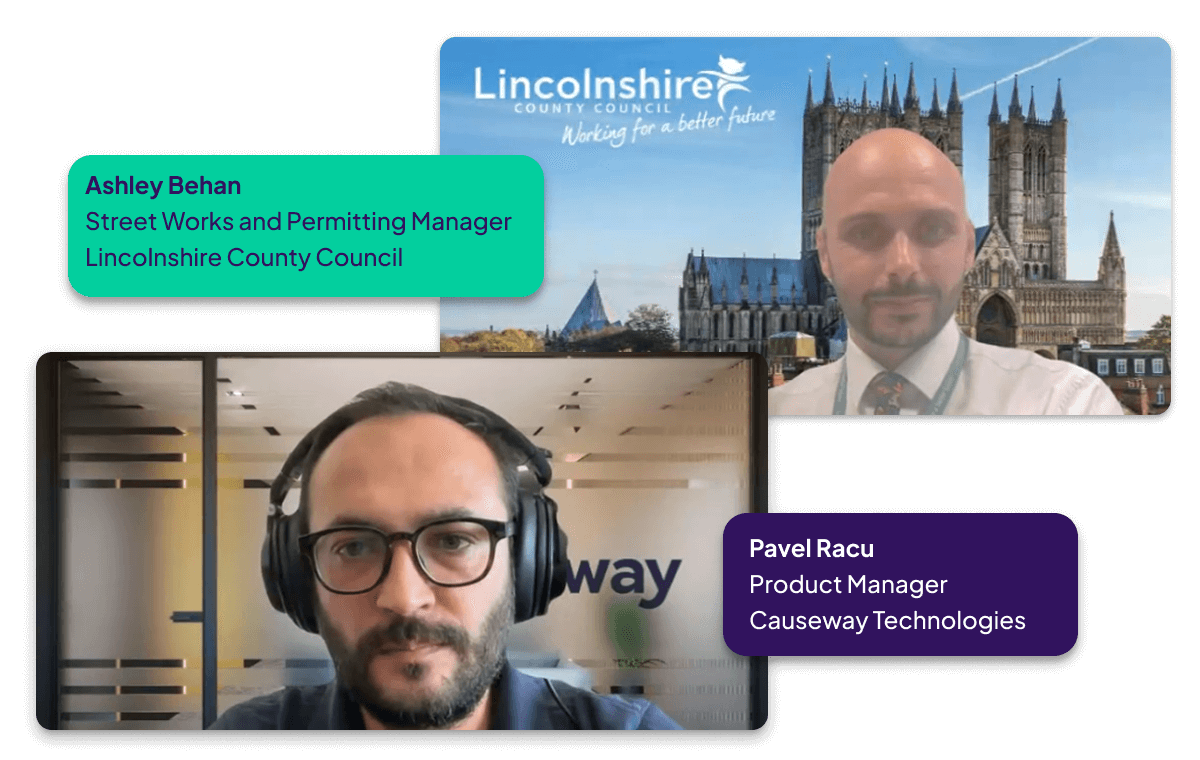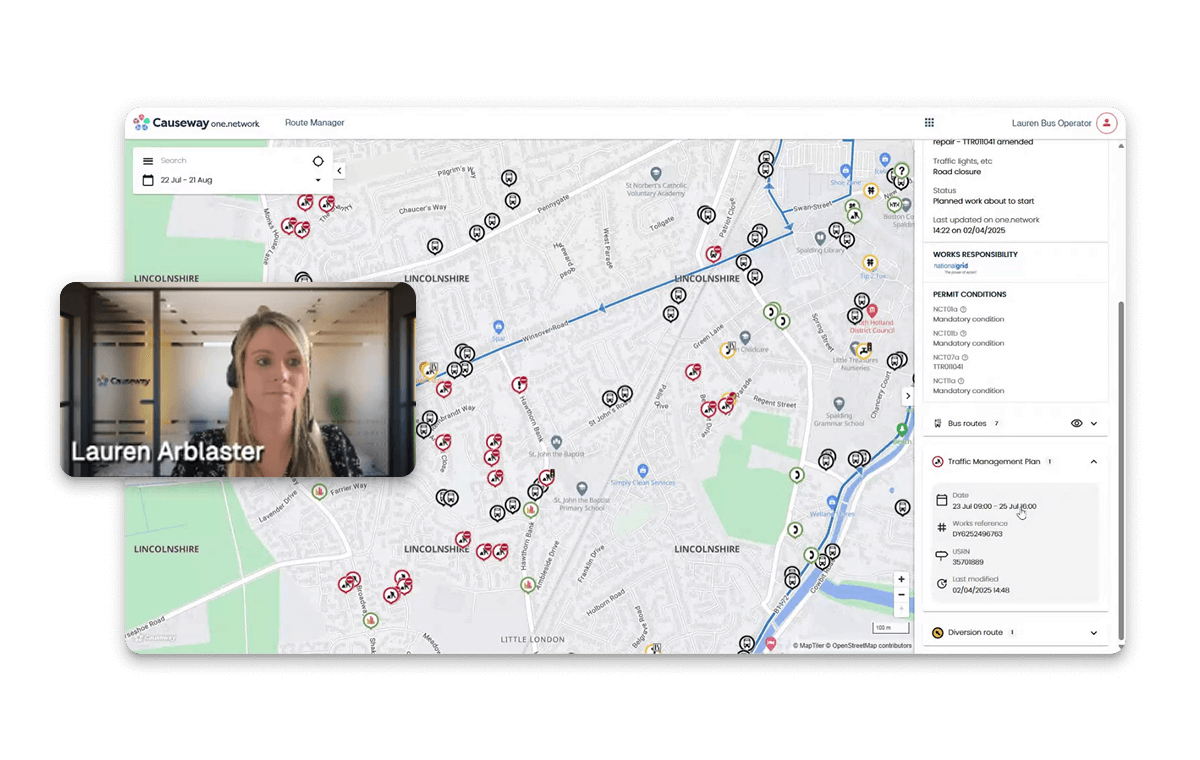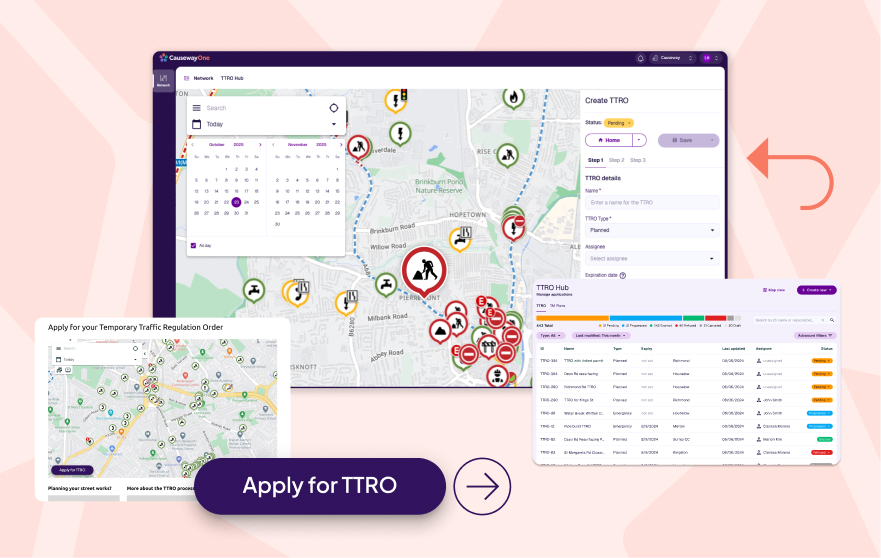Buses are the backbone of rural mobility—but what happens when essential roadworks threaten to throw timetables off track?
In our recent webinar, Lincolnshire County Council (LCC) shared how they’re tackling this very challenge. With 50,000 sets of roadworks a year and more than 40 bus operators to coordinate, the need for better communication has never been more urgent. Their answer? A shared, digital view of the road network—powered by CausewayOne Network.
Whether you’re a bus operator trying to stay ahead of road closures, or a council looking to improve coordination and reduce disruption, here’s what we learned.
You can watch the recording here.
The scale of the challenge: 5,500 miles of roads, 40+ operators, rising disruption
Lincolnshire is the second largest county in England, with a sprawling road network that includes around 50,000 sets of roadworks every year and over 40 bus operators running timetabled and school services. It’s a complex landscape to manage and one where even small miscommunications can ripple into major disruption.
As Ashley Behan, Street Works Manager at Lincolnshire County Council, explained during the webinar: “I myself and the team have spoken to bus operators over a number of years and really understood firsthand that how we're communicating roadworks as a council, and their impact on services, could be a lot better.”
The council's collaboration with Causeway isn’t happening in isolation. It’s closely aligned with the Department for Transport’s National Bus Strategy, which prioritises journey reliability, communication, and data sharing between stakeholders. Through their BSIP-funded initiatives, Lincolnshire introduced the Lincolnshire Bus Passenger Charter—a public commitment to providing clearer, more reliable information to bus users.
“We really do want to do something to make a difference and CausewayOne Network is one of the few things we can do, together with our bus operators, to make that happen.”
Ashley Behan, Street Works Manager at Lincolnshire County Council
CausewayOne Network gives everyone the same map
To tackle this, Lincolnshire turned to CausewayOne Networks Route Manager module. The platform delivers a shared, real-time map of roadworks and their impact on bus routes—for both local authorities and operators. As Pavel Racu, Product Manager at Causeway, explained: “Our effort was—and is—to give the right tools to the right people so that they can actually make better decisions faster.”
Behan described CausewayOne Network as “the only system we found that gives a single source of the truth,” enabling operators to log in and plan ahead with confidence. For councils, it offers smart tools to flag potential service disruptions, assess permit conditions, and coordinate across departments.
More joined-up working, better communication
Since adopting CausewayOne Network, the way teams collaborate has evolved. “Now we’re in a position where operators can log in and see that dashboard for themselves,” Behan explained. “Internally, highways and transport teams are working more closely. We’re also rolling out weekly alerts that highlight high-impact clashes.”
The result? Bus operators are no longer reliant on last-minute phone calls or chasing updates. They have the data at their fingertips, with clear classifications of roadwork impact: high, medium, or low.
Importantly, they can also now view permit conditions, which weren’t previously available to them. That means if a closure is scheduled for overnight hours, operators can quickly assess whether their services are actually affected. As Lauren Arblaster, Account Manager at Causeway demonstrated during the webinar, “if a road closure runs from 6 PM to midnight, and buses don’t operate during those hours, then actually there’s no operational impact.”
Not just Lincolnshire: a national shift is underway
LCC isn’t the only authority embracing digital transformation to support smoother bus operations; Arblaster pointed out: “Councils like Surrey, Cornwall, and others are also using Route Manager to better support their bus operators and ensure smoother, more informed service delivery.” A growing number of councils are adopting this proactive, shared approach to minimise disruption.
What’s next? Emergency works and continuous improvement
While CausewayOne Network has significantly improved how Lincolnshire manages planned works, the team isn’t stopping there. Around 20% of roadworks in the county are emergency or immediate works, which are often the most disruptive.
As Ash noted during the webinar, these short-notice events “can be some of the most impactful,” and the council is now actively working with Causeway to improve communication around emergency works, ensuring operators can respond quickly even when the unexpected happens.
“Route Manager has evolved tremendously over the past year through close collaboration with forward-thinking our customers like Lincolnshire,” said Racu. “We’re continuously enhancing the platform to better meet the needs of our customers and that is driven by the people using it every day.”
Ready to get started?
-
Watch the webinar to see Route Manager in action
-
If you’re a bus operator in Lincolnshire:
- Reach out to your LCC transport contact or email ashley.behan@lincolnshire.gov.uk to get onboarded.
- Reach out to your LCC transport contact or email ashley.behan@lincolnshire.gov.uk to get onboarded.
-
If you’re a council or operator elsewhere:






